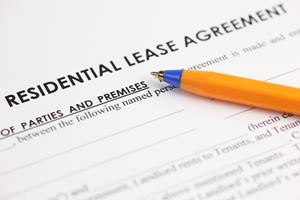 Many homeowners who are extremely motivated to sell their homes often overlook the lease option or lease purchase alternatives to home sales. While certainly not a perfect solution, these alternatives may be quite useful in avoiding a short sale or foreclosure.
Many homeowners who are extremely motivated to sell their homes often overlook the lease option or lease purchase alternatives to home sales. While certainly not a perfect solution, these alternatives may be quite useful in avoiding a short sale or foreclosure.
A lease option agreement is a contract with a deposit of option money granting to the tenant the option to purchase the property upon certain fixed terms and conditions at a particular date in the future. If the tenant does not exercise the option in accordance with the terms of agreement or is otherwise in default under the agreement, the tenant loses the right to purchase the property and forfeits any and all interest in the option money paid by the tenant. If the tenant does exercise the option to purchase, the tenant is given credit for the option money consideration against the purchase price. The format of a lease option agreement can vary, but typically consists of a lease with provisions concerning the option to purchase, i.e. when and how the option can be exercised as well as the terms of the purchase. Oftentimes, the terms of the purchase are set forth in a real estate contract attached to the lease option agreement, and are incorporated by reference into the lease option agreement.
A lease purchase agreement is really nothing more than a real estate contract with a delayed closing date, with the buyer leasing the property until the closing date. The buyer pays an earnest money deposit to be applied against the purchase price at closing. If the buyer defaults under the lease, the buyer will be deemed to have defaulted under the purchase contract and vice-versa. If the buyer defaults, the seller will have all remedies set forth in the contract and the lease arising out of the buyer’s default.
One of the main sticking points in the negotiations of these types of agreements is the responsibility for repairs or replacements which may become necessary during the term of the agreement. It is almost always the case that the tenant is responsible for normal maintenance, but who is responsible if the roof leaks or the refrigerator needs to be replaced? The answer may depend on which of the agreements is being utilized. A lease purchase agreement is often times being done at the request of the buyer who needs time to establish good credit or save money for a down payment. Under these circumstances, there is a stronger basis to require that the buyer be responsible for repairs and replacements. As a compromise, the parties may be able to agree that the seller is responsible for the first fifty dollars ($50.00) or one hundred dollars ($100.00) of each repair.
Some concerns for the buyer under either of these agreements is the potential for title problems or a foreclosure action against the seller which may result in the seller not being able to convey marketable title to the property or worse yet, the seller losing title to the property and the tenant/buyer potentially being evicted from the property. Of concern to the seller are the liability issues and other potential problems associated with being a landlord.
In many cases, the seller under either of these agreements will be able to sell the property for a higher price than a distress sale or pre-foreclosure sale. Additionally, these alternatives do not result in negative credit experience to the seller.
This article is intended to be a very general discussion of lease option agreements and lease purchase agreements. There are numerous other issues and considerations in connection with these documents. It is imperative that you consult with competent legal counsel to address these and other issues associated with lease options and lease purchase agreements.

